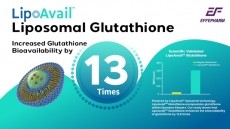Kemin wins lutein patent case
the chemical composition and production process of lutein, in a
trial in Des Moines, Iowa, against Pigmentos Vegetales del Centro.
"We are very pleased that the jury has rendered a favorable verdict finding Kemin's core lutein patents valid and we will continue to vigorously defend our US and international lutein patents," said the company in a statement after the hearing.
Lutein, which cannot be made by the body, helps protect eyes by depositing in the macula where it filters out harmful blue light, stopping it from reaching and damaging the sensitive back tissue of the retina. In the western world the average lutein intake is just 2mg per day, compared to the recommended 6mg daily, according to Kemin.
Last year, the US firm, which produces FloraGLO brand Lutein, sponsored a UK educational initiative run by charities the Royal National Institute for the Blind (RNIB) and AMD Alliance to raise awareness of the role of lutein in preventing Age-related Macular Degeneration - currently the leading cause of blindness among those over the age of 50.
In the UK, 15.8 per cent of the population is expected to be aged 60-74 by 2015, signalling a future increase in the impact of AMD.
"Studies have shown that those with a diet rich in lutein and zeaxanthin have a 43 per cent lower prevalence of AMD. GPs have a vital role to play here in ensuring patients are aware of the need to include lutein in their diet, either through green leafy vegetables or by supplementation with a product containing purified crystalline lutein," said Pedro Vieira, marketing manager for Kemin Foods.
Kemin also sponsors the Lutein Information Bureau, a website offering information on the condition.
Carotenoids such as lutein are still 'under-utilised' as nutraceutical ingredients by the food industry and consumers are still unaware of their health benefits, according to recent report by Frost & Sullivan.
The market research firm claims that the low level of public awareness about the health benefits of carotenoids, still used primarily as a colouring agent for the food and feed industries, is expected to stifle market growth in the short term.
"Low consumer awareness of the health benefits of carotenoids particularly affects the newer, naturally-extracted carotenoids lycopene, lutein and natural beta-carotene," said food research manager Anna Ibbotson.
The European carotenoid market is forecast to accumulate $419.6 million in 2010. Revenue expansion is projected to be driven by an emphasis on personal health combined with the rising interest in preventative health measures by Europe's ageing population. Principal growth is likely to be experienced by beta-carotene with $23.0 million, lycopene with $26.0 million and lutein with $21.0 million.













